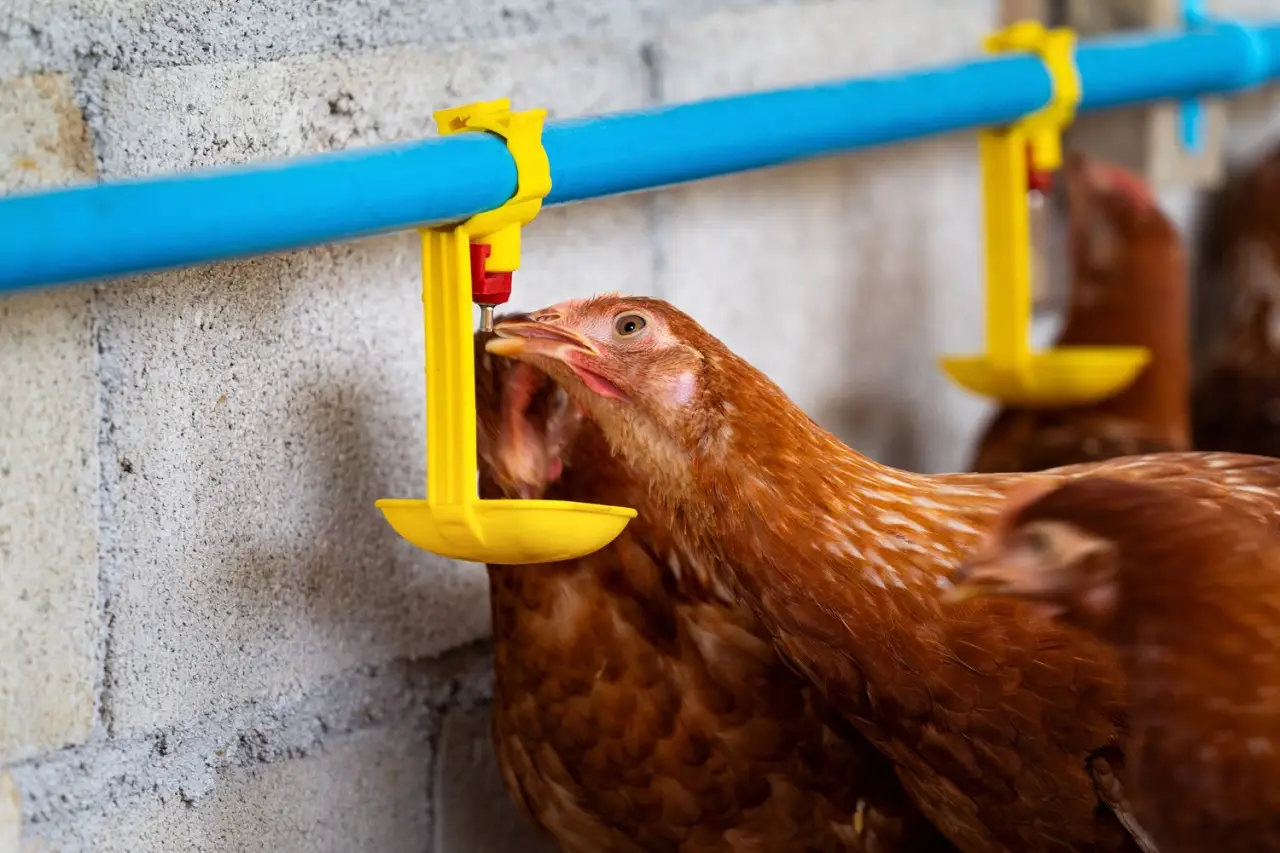Poultry farming is one of the most profitable agricultural ventures today, but it comes with responsibilities. Among the most important is hygiene and biosecurity. Maintaining high standards of cleanliness and disease prevention not only protects your flock but also ensures consistent growth, productivity, and profitability.
At Royal Farms, we strongly believe that prevention is better than cure. By following effective hygiene and biosecurity practices, farmers can create a safe environment that keeps their birds healthy while maximizing returns.
Why Biosecurity is Important
Table of Contents
ToggleBiosecurity simply means all the precautions and measures taken to prevent the entry and spread of diseases in poultry farms. A single lapse can lead to infections that spread rapidly, causing high mortality, reduced egg production, and major financial losses. By making biosecurity a priority, farmers protect not just their birds but also their long-term investment.
Key Hygiene and Biosecurity Practices
1. Build the Right Infrastructure
The design and layout of your poultry shed plays a crucial role in hygiene. At Royal Farms, we recommend modern EC sheds that provide controlled ventilation, optimum temperature, and better waste management. These sheds are easier to clean and disinfect, making them a smart choice for commercial poultry farming.
Learn more here: https://royalfarms.co.in/ec-sheds-poultry-farming/
2. Maintain Clean Housing
- Clean and disinfect sheds regularly, especially between batches.
- Remove litter, droppings, and spilled feed without delay.
- Keep walls, floors, feeders, and drinkers free from dirt to stop disease-causing organisms from multiplying.
A clean poultry house not only reduces infection risk but also keeps birds stress-free and productive.
3. Safe Water and Feed Management
- Provide clean and fresh drinking water at all times.
- Test water quality frequently to ensure it is free from contaminants.
- Store feed in dry, covered containers to prevent rodent or insect infestation.
- Clean feeders and drinkers daily to avoid residue build-up.
When birds get pure water and balanced feed, their immune system remains strong and resistant to infections.
4. Control Human Movement
Visitors and workers can unknowingly carry harmful germs into your farm. To prevent this:
- Restrict entry of outsiders into poultry sheds.
- Provide protective clothing, boots, and gloves for staff.
- Use footbaths with disinfectant at every entry point.
- Train workers to follow proper hygiene practices.
A disciplined workforce is the first line of defence against infections.
5. Monitor Bird Health Daily
Regular observation is vital. Farmers should look out for early signs of illness such as reduced feed intake, unusual droppings, coughing, or sudden deaths.
- Remove sick birds immediately to prevent the spread of infection.
- Dispose of dead birds properly through burial or incineration.
- Keep accurate records of vaccinations, mortality, and growth rates to track overall flock health.
Pest and Rodent Control
Rodents, insects, and wild birds are carriers of many poultry diseases. Keeping them away is crucial for farm hygiene.
- Seal gaps in sheds to prevent entry of pests.
- Use safe rodent control methods and traps.
- Remove waste and standing water that attract insects.
- Keep surroundings clean and weed-free.
By eliminating pests, you eliminate many hidden threats to your flock.
The Role of All-in All-out System
Practicing the all-in, all-out system (rearing birds of the same age group together and removing them at the same time) is one of the most effective biosecurity methods. This system ensures that younger chicks are not exposed to diseases carried by older birds. It also allows thorough cleaning and disinfection between batches.
Royal Farms – Supporting Farmers with Smart Solutions
At Royal Farms, we are dedicated to helping poultry farmers achieve better results with modern and scientific approaches. Our poultry farming solutions focus on biosecurity, nutrition, and infrastructure that enhance both productivity and profitability.
By combining hygienic practices, biosecurity protocols, and advanced EC sheds, farmers can reduce risks and build sustainable poultry businesses.
Final Tips for Long-term Success
- Always plan hygiene as part of your daily routine.
- Train your team regularly about the importance of biosecurity.
- Quarantine new birds before introducing them into the main flock.
- Budget for disinfectants, protective clothing, and veterinary check-ups.
- Review and upgrade your biosecurity plan regularly.
Conclusion
Hygiene and biosecurity are the backbone of successful poultry farming. With the right infrastructure, disciplined management, and regular monitoring, farmers can prevent diseases, protect their flocks, and increase profitability.
Royal Farms supports farmers by offering modern EC sheds and comprehensive poultry farming solutions that make maintaining hygiene and biosecurity much easier. Explore more about our expertise and see how we can help your farm grow:
By making hygiene and biosecurity your priority, you are not just protecting your birds—you are securing the future of your poultry business.













